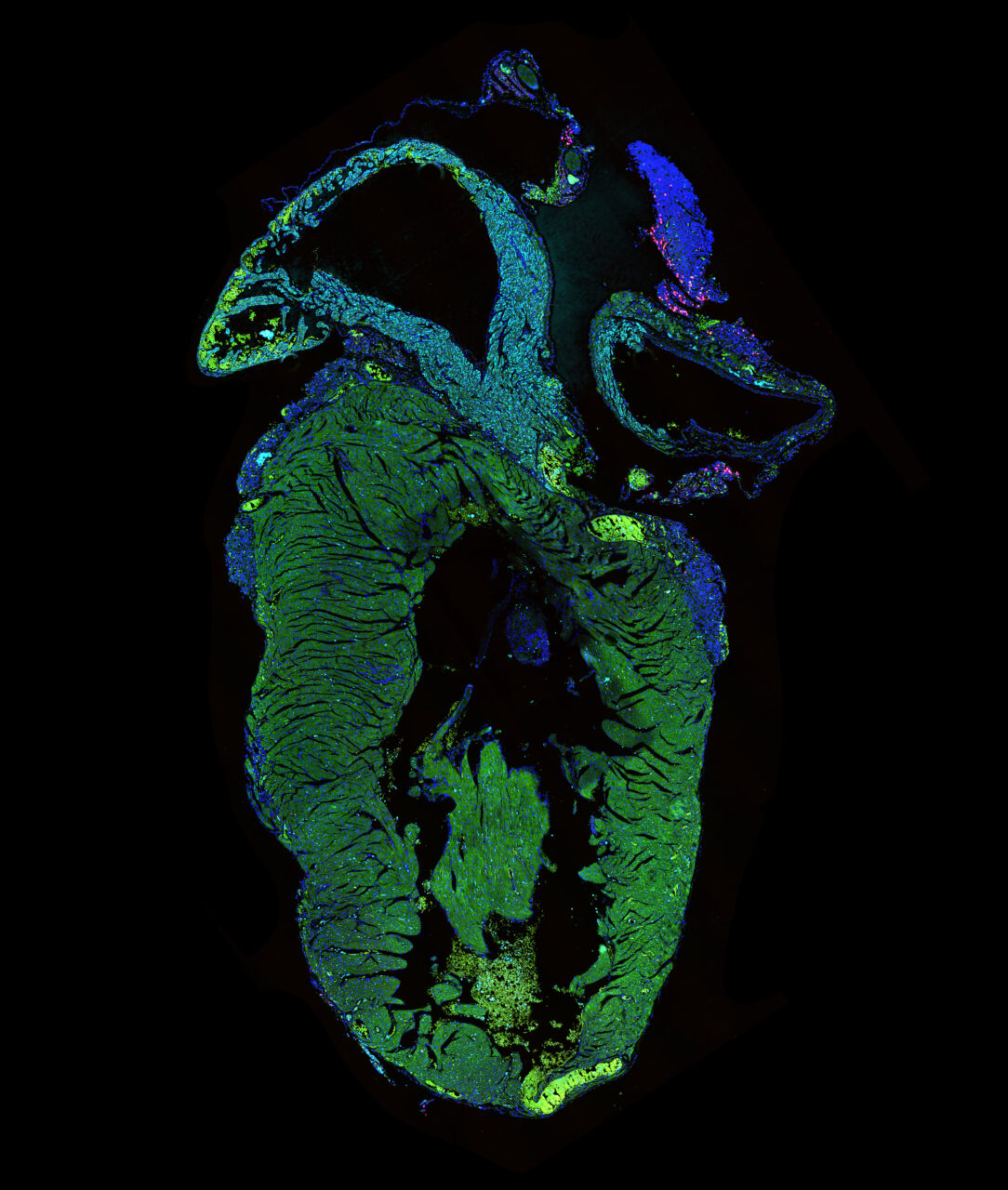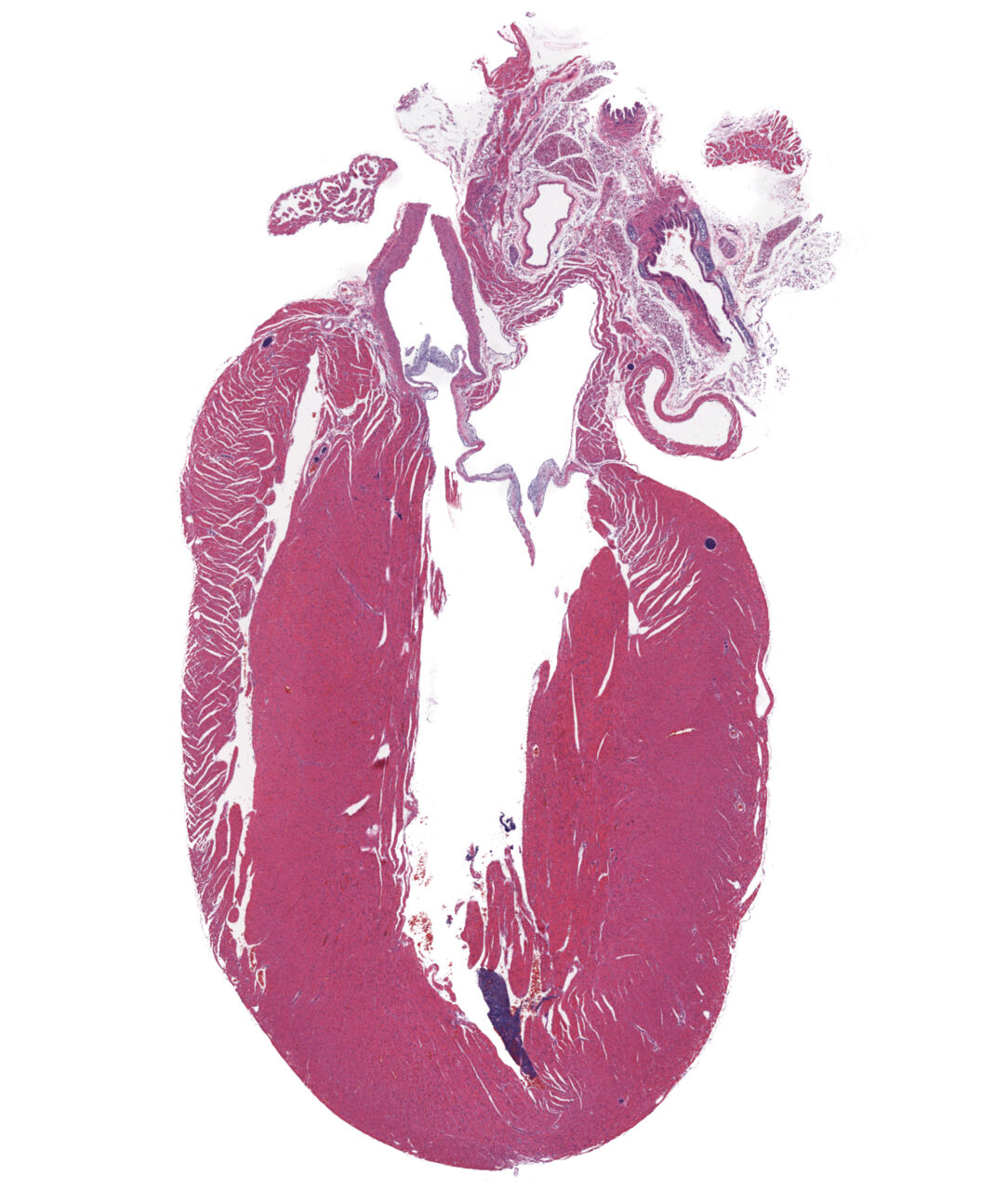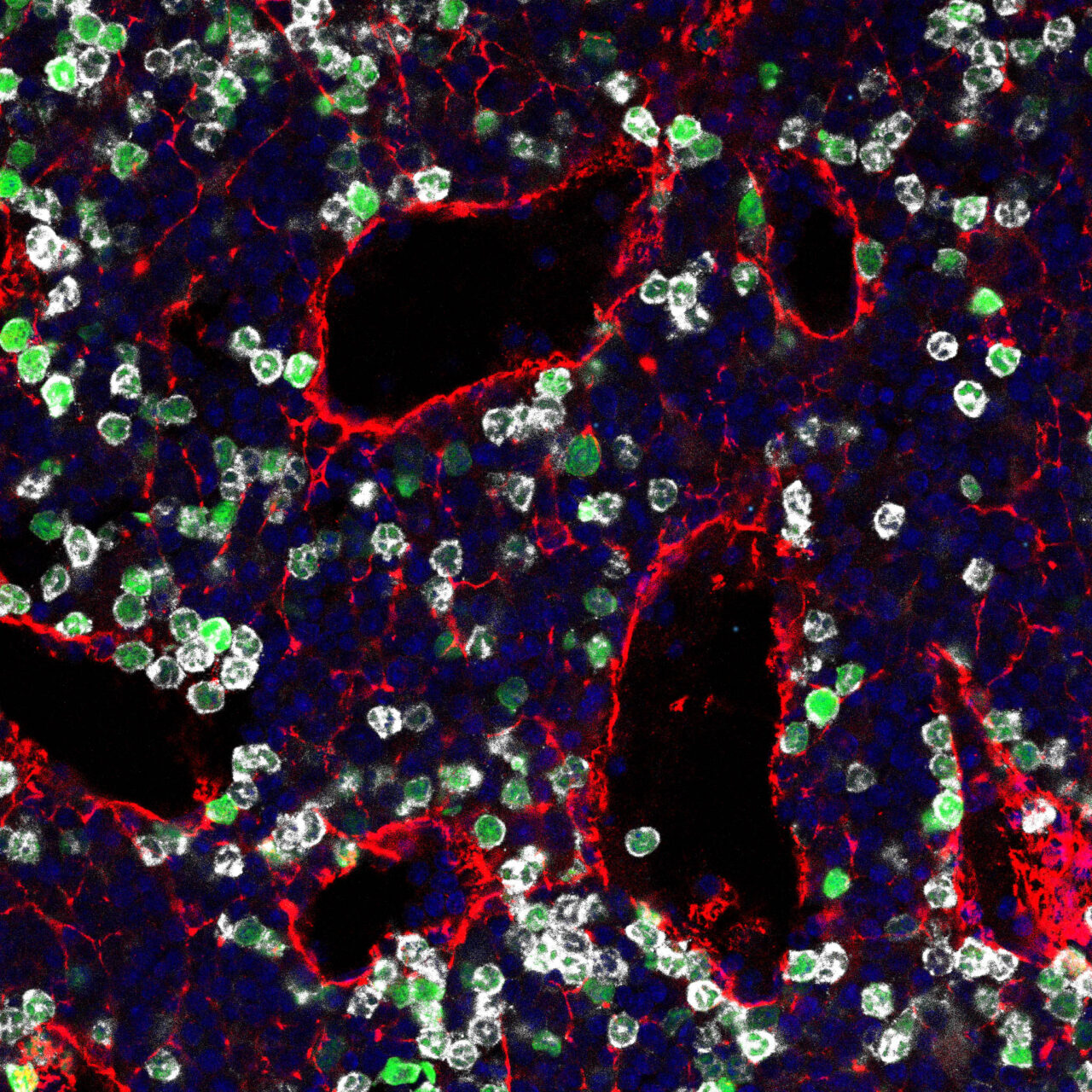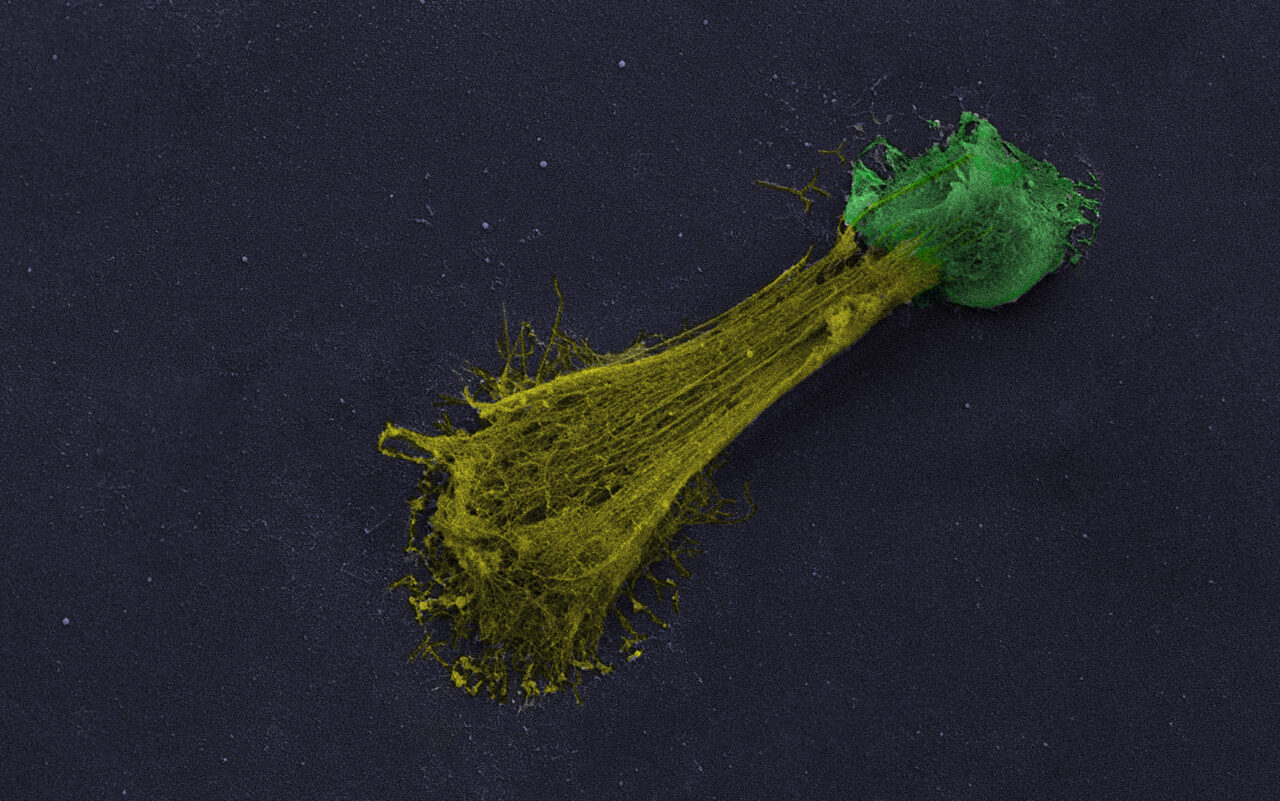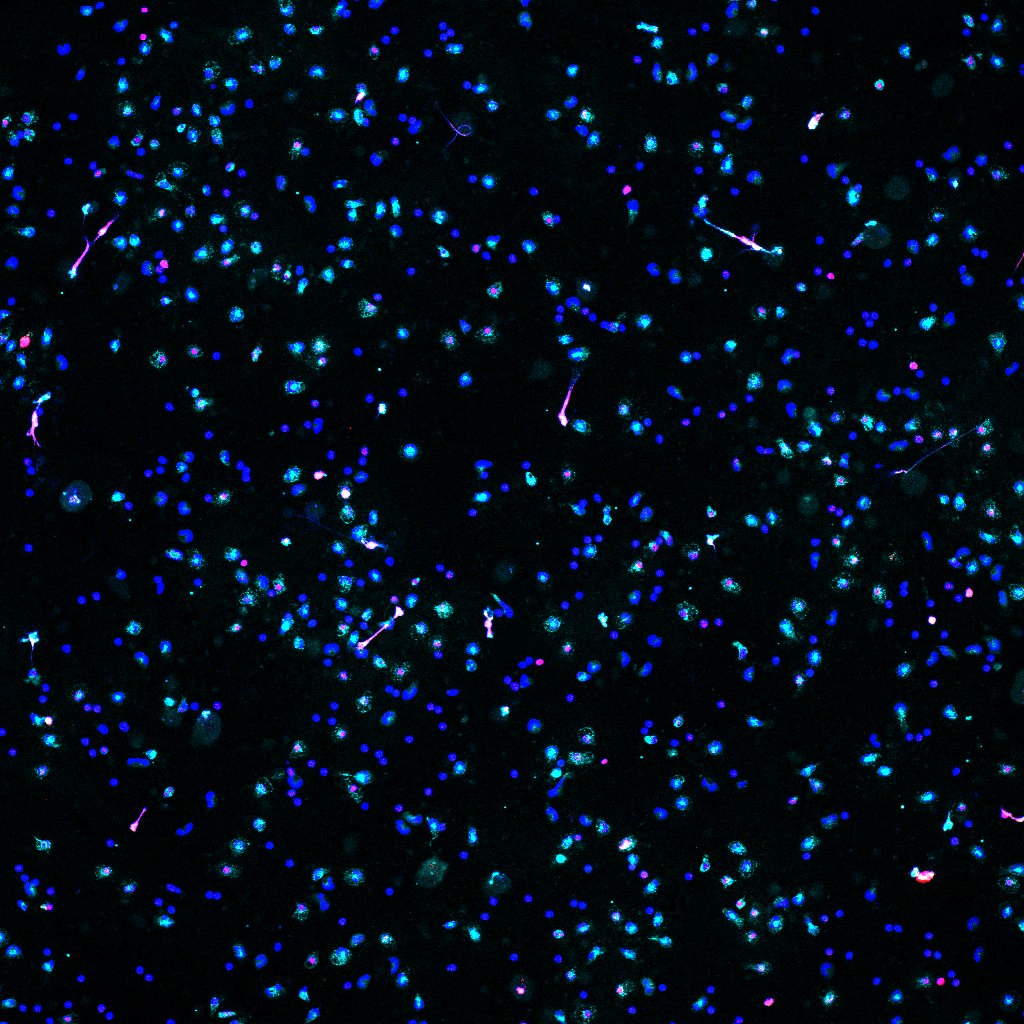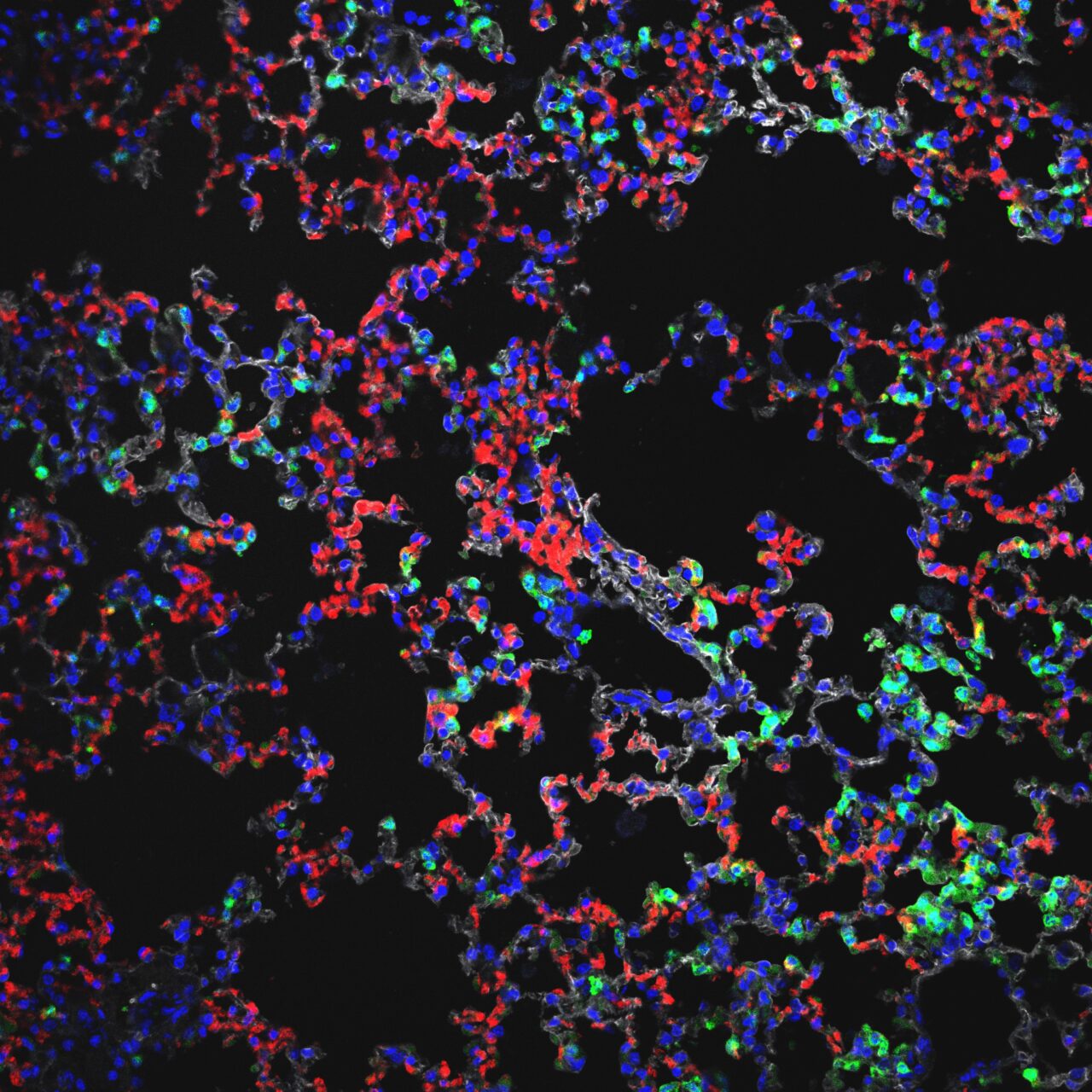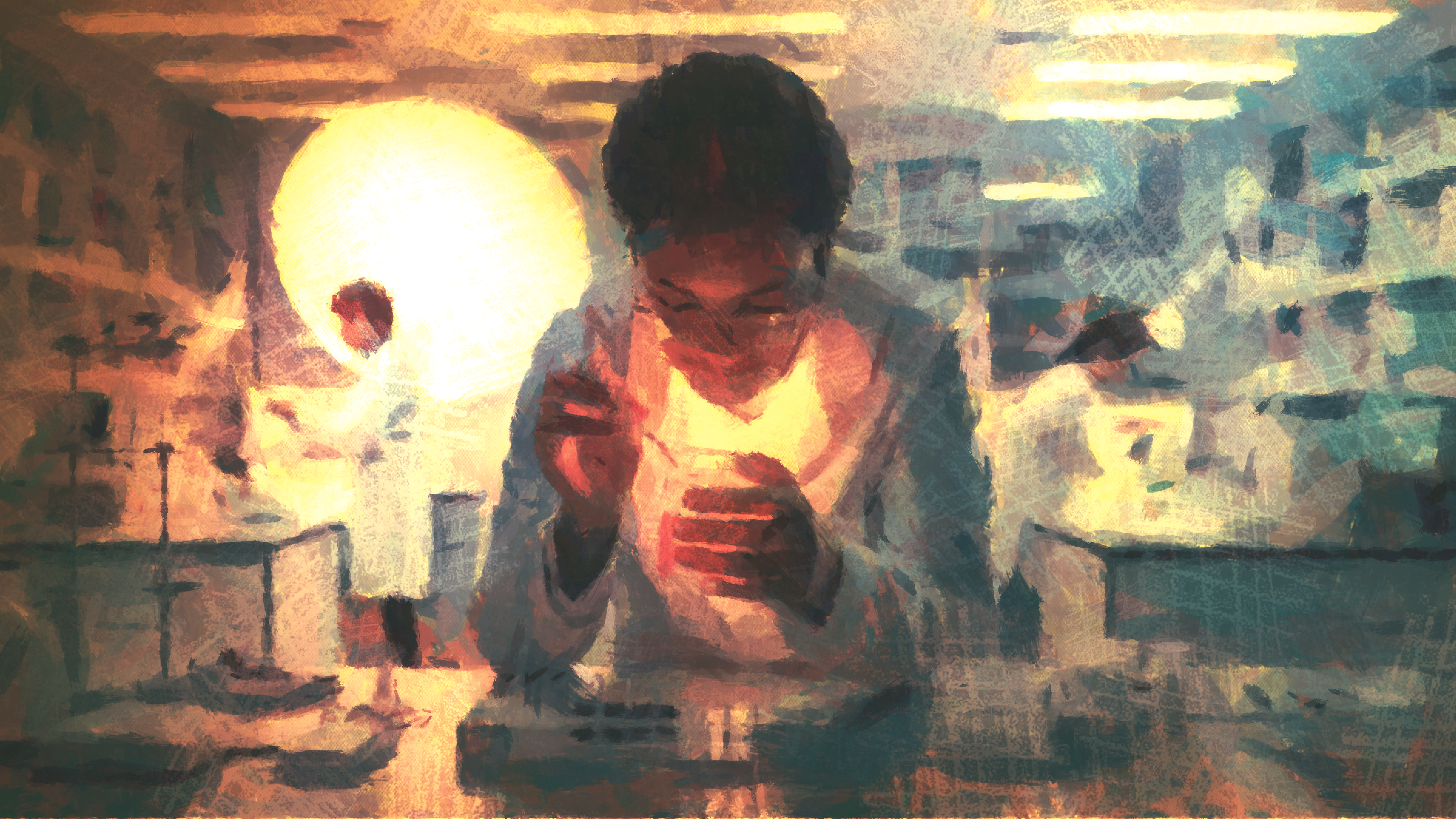
Areas
of interest
We study how cancer affects whole-body physiology, particularly emphasising the cardiovascular, haematopoietic, and immune systems.
Cancer is a highly complex disease, and tumour progression requires the concerted action (and inaction) of many physiological systems. To survive, tumours co-opt, modulate, and alter many different biological processes, both locally in the tumour microenvironmental ecosystem and broadly in the whole organism, the “macroenvironment” of cancer. In doing so, however, cancer affects normal physiology in ways that are detrimental to the welfare of (and that often result in fatal outcomes for) cancer patients.
Area 1
Cancer-cardiovascular disease interplay
Area 2
Cancer-haematopoiesis interplay
Area 3
Cancer-innate immunity interplay

Area of interest 1
Cancer-cardiovascular disease
A prime example of cancer-host interplay is the abnormally elevated burden of cardiovascular disease that cancer patients endure. Many clinical reports are showing a correlation between cancer and cardiovascular disease. For instance, lung cancer patients have a 90% increase in the risk of coronary artery disease, and over 66% increased risk of cardiovascular disease overall in comparison to the general population, and the first cause of death of breast cancer survivors is cardiovascular disease.
But we’re still lacking information on how this takes place and, most importantly, on how can we protect cancer patients and cancer survivors from this terrible burden. Understanding these critical unknowns is one of the main efforts of our laboratory.

Area of interest 2
Cancer-hematopoiesis
interplay
A second example of how cancer as a systemic disease remotely affects other normal physiological processes is the changes that cancer imposes on the haematopoietic system. The haematopoietic system (from the Greek haima–, “blood” and –poiesis, “to produce”) is located inside our bones, and it constantly produces all the cells that flow in our blood, including the red blood cells and the cells of the immune system (the white blood cells). As cancer progresses, it often affects normal haematopoiesis.
This is still not well understood and it’s important because when the tumour remotely affects the stem and progenitor cells in the bone marrow, it can shift the production of different immune cells towards states that favour the growth and dissemination of the tumour. These same changes can also cause other problems for cancer patients, including some that will affect cardiovascular health. Understanding how this takes place to find ways to revert it will be another goal of the cancer macroenvironment lab.
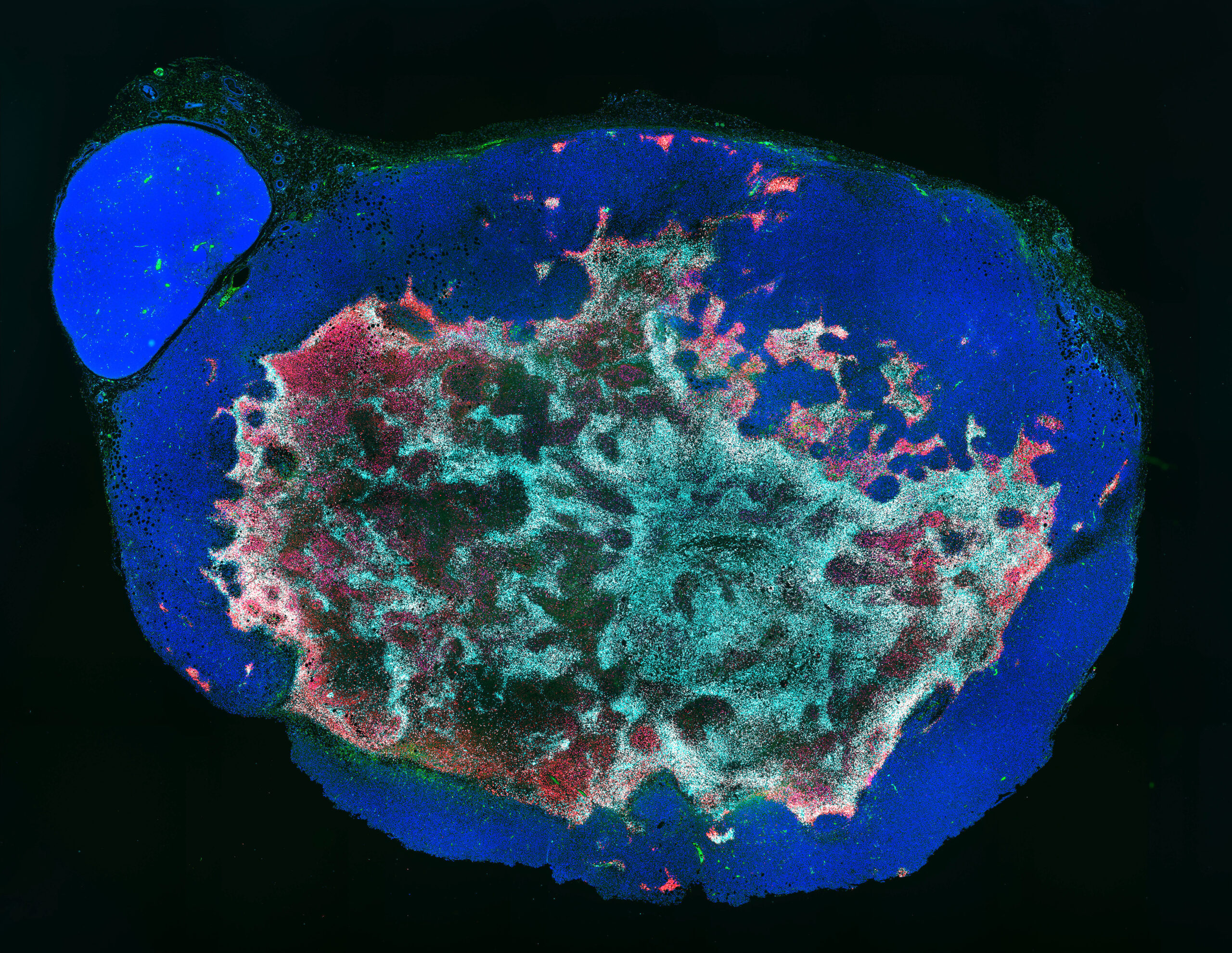
Area of interest 3
Cancer-innate immunity
interplay
But cancer can affect immune cells in ways other than affecting their progenitor cells. Immune cells are exquisitely regulated because they are double-edged swords. They need to protect the host by quickly and efficiently eliminating dangers, but they also need to be careful to avoid damaging the host organism itself. In this context, we will focus primarily on neutrophils, which are the most abundant immune cells in human blood and act as first responders against many different insults. These cells are equipped with a broad array of functions shaped to locate, attack, and destroy invading pathogens, and they also play important non-inflammatory roles.
They are in a sense the foot soldiers of the immune system, but foot soldiers equipped with nuclear weapons. If these cells get activated in the wrong place, at the wrong time or for the wrong reasons, they can cause damage to the organism, and this plays a role in many conditions that cause a lot of human suffering, from autoimmune diseases to wound healing problems, acute lung injuries, thrombosis, myocardial infarction, stroke, and cancer. Tumours can modulate the responses of different immune cell types (they hyper-activate some and stun others) to avoid being removed, and they affect neutrophil behaviours too. We are investigating how these cancer-imposed neutrophil changes affect both cancer progression and the general health of cancer patients and survivors.

We believe that understanding these processes will lead to better treatment options both for cancer patients and patients suffering from cardiovascular disease.

